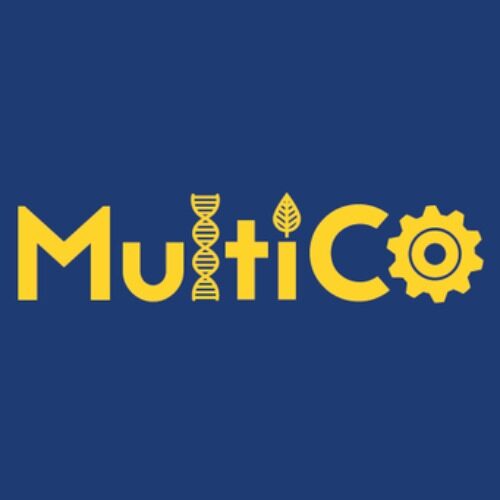
MultiCO - Promoting Youth Scientific Career Awareness and its Attractiveness through Multi-stakeholder Cooperation
Leaders
The MultiCO (Promoting Youth Scientific Career Awareness and it Attractiveness through Multi stakeholder Cooperation) is a three-year research program which has secured funding under Horizon 2020 (Horizon 2020).
In MultiCO together universities from five European countries: the UK, Finland, Estonia, Germany and Cyprus. The main goal of the project is to promote students’ awareness about possible career choices in science and technology.
Originally intended to work with partners in industry and business to create a collection of stories of scientists, which will act as asset in designing creative didactic scenarios to be implemented in the classroom. The aim of the scenarios is to enhance students’ interest in science, both as a discipline in the curriculum as well as a possible career direction.
The pursuit of research MultiCO program will be promoted through a participatory process based on cooperation between researchers in the areas of science and technology, teachers, guidance counselors, educational policy-making bodies, especially students. This group is mainly in the design of teaching scenarios with students at the forefront as it is necessary to their active involvement in the program.
Cooperation
-
This project builds on literature research outcomes and proposes to study the impact of real life related, career-focused stories (referred to as scenarios) as the introduction to the learning of science subjects by secondary school students (ages 13 to 15). Through such an innovative development, initiating motivational and meaningful context- and inquiry-based science studies, the project researches the impact on learning and attitudinal gains, as well as students’ own ideas to enhance the relevance of science studies. The target is to increase students’ future preferences for choosing science studies and their desire to reflect on and pursue science-related careers.
-
There has been a general educational trend towards context-based approaches and viewing science education as being education through the context of science. Context-based approaches and strategies that actively engage students in the learning process have been shown to result in improvement in students’ attitudes towards science, although the need for students to input their ideas and their indigenous knowledge should be taken into account. However, research has shown that middle grade students were not aware of career options, were not conversant with competences needed and few indicated knowing professionals actively working in the science, technology, engineering and mathematics fields. Yet in recruiting graduates, employers have indicated that a range of skills were important and that the most important skills were team working, sector-specific and communication skills.
-
The intended project outcome is to raise youth awareness of the role of science and technology in society, an awareness of science and technology careers and orientation of students towards gaining positive views towards undertaking science careers. The project is planned as a longitudinal study over 3 years, involving multi-stakeholder co-operation between different stakeholders.
-
The project is balanced so that all consortium partners work with all work packages. The project consortium brings together expertise at the highest level and quality from different areas of science education geared to secondary school and teacher education. The consortium carries out research in five European countries (Cyprus, Estonia, Finland, Germany, and United Kingdom).
The consortium has been selected to represent different educational and cultural contexts, different achievement levels in international science education studies and different parts of Europe. Cyprus represents the Mediterranean countries, Estonia Baltic and Eastern countries, Finland Northern Scandinavian countries, Germany, countries from Middle Europe, and U.K. the Western countries. In this way, the consortium is able to extrapolate and exploit the findings from the five partner countries at the European level. The consortium includes big countries (U.K., Germany), small countries (Finland, Estonia and Cyprus), old European Union members (Germany, U.K.) and new members (Estonia, Cyprus). Through European collaboration, the project enables excellent medium-scale research and supports the research infrastructure of these countries both at the individual and at the European level. Particularly the small countries benefit from the research collaboration.
The partners of the consortium bring with them considerable expertise in research on science education. All project partners have been extensively involved in the actual development of science education through their research and from different points of view. As well as in their respective research, all partners have special expertise in science education as well as in teacher education. Furthermore, while all partners have high science education research expertise, Finland has wide experience in ICT based education and e-learning interventions, Cyprus in inquiry learning, the United Kingdom has expertise in participation and reasoning education, Germany is specialised in creativity in science education and informal learning, while Estonia has expertise in Socio-Scientific Issues and scientific literacy in science education. All partners have an institutional background related to their national and international networks and are well placed to disseminate the project outcomes.
Teaching material
Teaching materials are career-based scenarios and other materials supporting the implementation of career-based scenarios.
Career-based scenario
- is a real life related, career-focused story, which initiates context- and inquiry-based science studies
- presents the problem to be solved/issues to be discussed
-
Career-based material
Career circle
Career descriptionsCareer stories
Overview of career stories
Acoustic engineer
Agricultural engineer
Biologist
Biotechnology
Botanist
Calibrator
CEO – physicist
Dentist – plastic surgeon
Director – associate professor
District manager
Electrical computer engineer
Environmental engineer
Environmental scientist
Forest engineer
Head of department
Horticulturist
Inorganic scientist
Lab specialist
Lecturer
NC machinist
Neuroscientist
Office construction foreman
Principal sustainability advisor
Process specialist
Research scientist
Seismologist
Technical assistant
Transport engineer
Transport planner
Veterinary surgeon
Water service supervisor
Good Practices and Recommendations
A significant strand of the MultiCO-project was also the development of guidelines for policy and teacher education building on findings from the different phases of the study and ongoing collaboration and dialogue with participants and other stakeholders. The study aimed to mainstream good practices in using career-based scenarios.
-
The intervention studies undertaken within the partnership show how scenarios can be selected and incorporated into science lessons to bring about student interest and motivation. From data collected from each intervention research teams have analysed the findings taking into account multiple factors. Based on this, common features, which are recommended in career-based, scenario selection and implementation, are:
- A scenario needs to be short enough so that it can fit into lesson structures and sequences to allow for links to curriculum content and science inquiry.
- The scenario needs to be well structured, clearly linking content and careers (also future careers).
- The context needs to relate to students: often this means involving people who are young as role models, involving local contexts and using examples that make reference to students’ everyday culture in the modern world.
- It is preferable that scenario-based career discussions continue within or after the inquiry stages. Though scenarios are intended to be the initial motivating trigger, their impact on learning needs to be consolidated by reference to them during the lesson, or sequence of lessons.
- Scenarios can raise career awareness and are more likely to have an impact on this if they include several careers rather than only one.
- Where possible, it is advantageous to include students’ own ideas and activities related to careers by involving them in scenario development.
- A common finding among partners is that scenarios which include visits (out of school), and/or include assignments for students, are particularly stimulating.
- When out of school visits take place, it is important that students are able to relate to the experts they meet so as to optimise identification of the expert’s role. The experts need to be able to work with young people.
- Scenarios need to include discussion about values (for example social, ecological and economic sustainability), making science studies more relevant to students.
-
Generally, stakeholders agreed that career awareness should be increased. This view was also supported by the literature review that showed a lack of counselling. Knowledge of sciencerelated careers and working life skills needs to be raised in order to enable students to make relevant science study and career choices. Further, students’ interest raised slightly during the five interventions although differently in different countries. The curriculum should
- give greater recognition to young people’s capabilities to engage with processes associated with science-related careers, working life skills, and working with stakeholders
- include considerations of science-related careers and related working life skills linking science content in real-life/authentic context
- give time for the development of knowledge and skills to promote students’ self-efficacy
- support schools and teachers to implement career-based scenarios to support student’s interest in science and science-related careers.
Moreover, the project’s aim to support students’ awareness and realistic evaluation of (science) careers is of high importance considering that they seem to look for safe jobs, a good salary etc. It is recommended that
- students get the opportunity to acquire a realistic view of different careers to take the right decisions for their future – no matter if that leads them into a career in science or in another field of work’
- national school science curriculum contains the consideration of science-related careers and related working life skills.
In science education, the collaboration with stakeholders (other community members) could be promoted by strengthening networking. It is recommended that
- to support schools in networking with stakeholders through planning schedules which allow time for collaboration as well as for creating scenarios with stakeholders and to implement integrative teaching.
-
Teachers in the interventions undertaken within the partnership were enthusiastic to create and implement career-based scenarios, however, they had concern how the scenarios form a continuum with the following inquiries. Teachers also had little experience in collaboration with different stakeholders. It is recommended that
- science pedagogy courses in teacher education introduce to teacher students the basic ideas for creation of careers-based scenarios and the implementation of scenarios in line with curriculum
- introduction of career-based scenarios and their use is enlarged in other disciplines e.g., technology education
- teacher education offers possibilities to experiences in collaboration with different community members such as policy makers, entrepreneurs, scientist, staff in NGOs
-
MultiCO- project has found some evidence about the benefits of career-based scenarios. The time used for each intervention varied across the partnership and made it challenging to compare the results. It is suggested that
- the effects of interventions constituting at least eight lessons are examined,
- more schools and teachers are invited to participate in the study of effects of scenarios in raising interest,
- mixed method studies are undertaken to deepen the knowledge of quantitative studies with qualitative studies,
- longitudinal studies are undertaken from 5 graders to 11 graders,
- effects of implementation of career-based scenarios in grades 10 to 12 are studied,
- students’ prior knowledge with respect to the career presented in the scenarios are taken into account as to investigate whether the implementation of the scenario raised students’ awareness.

